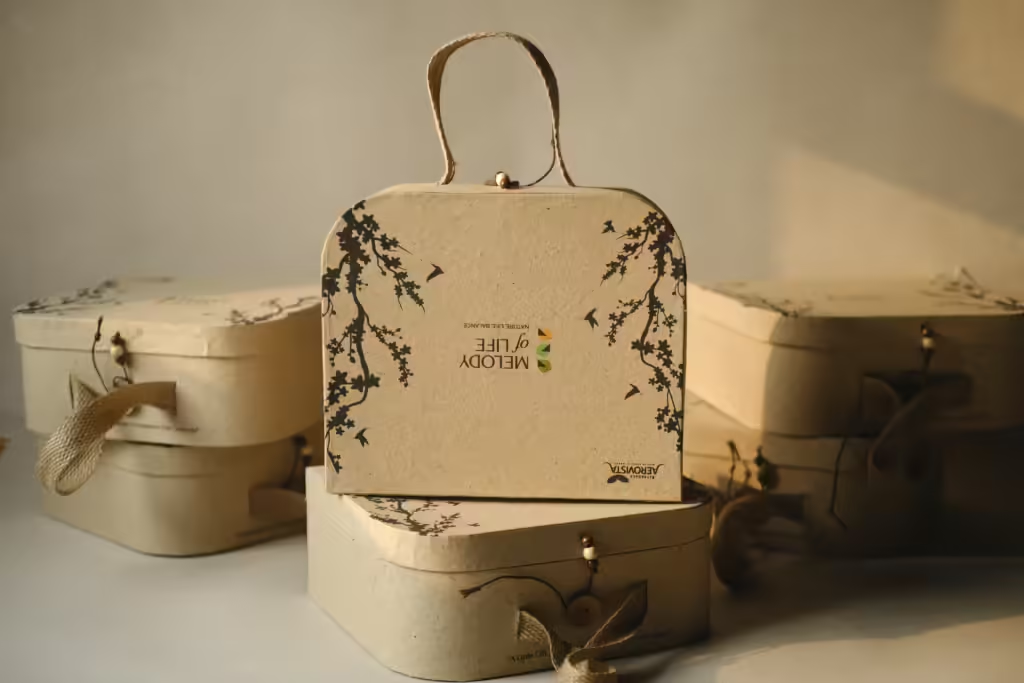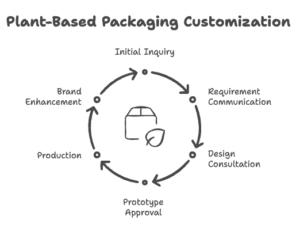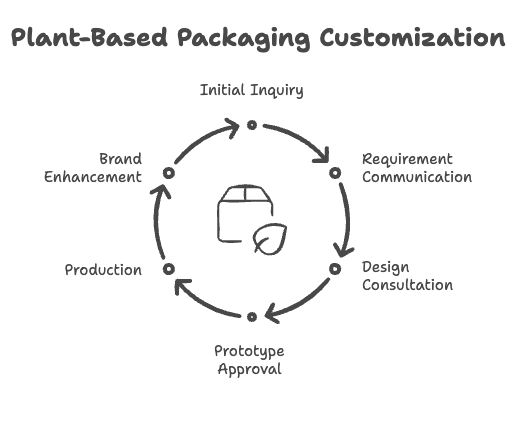
Introduction to Plant-Based Packaging
In today’s environmentally conscious market, the demand for sustainable packaging solutions has risen significantly. Plant-based packaging has emerged as a pivotal alternative to traditional materials, promoting sustainability while efficiently serving various packaging needs. This innovative approach utilizes biodegradable and compostable packaging solutions that contribute positively to the environment by minimizing waste and reducing reliance on fossil fuels.
At the heart of plant-based packaging are natural materials derived from renewable resources such as cornstarch, sugarcane, and other plant-based substances. These materials are not only eco-friendly but also offer a robust solution for businesses looking to adopt more sustainable practices. Transitioning to sustainable boxes made from these plant-derived items provides an opportunity to enhance the brand’s image while meeting consumer demands for greener options.
Among the various types of sustainable packaging, plant-based options can encompass a range of products, including b2b boxes designed for industrial uses and d2c boxes tailored for direct-to-consumer shipments. By implementing compostable packaging in both B2B and D2C contexts, businesses can ensure their impact on the environment is minimized, catering to the growing number of eco-conscious consumers. Furthermore, such shifts can lead to improved customer loyalty and trust as they align with the values of sustainability that many today prioritize.
The benefits associated with using plant-based materials over traditional packaging options are manifold. Not only do they reduce environmental impact, but they also support the circular economy by being part of a larger system where resources are recycled and reused. By exploring plant-based packaging solutions, businesses can take significant strides toward sustainability while effectively fulfilling their packaging requirements.
Features of Our Custom Plant-Based Boxes
Our custom plant-based boxes stand out in the realm of sustainable packaging, offering an eco-friendly alternative without compromising on quality or aesthetics. The primary materials used in the production of these boxes come from renewable plant fibers, including sugarcane bagasse, bamboo, and recycled paper products. These materials contribute not only to the durability of the boxes but also to their compostability, ensuring that when disposed of, they return to the earth without leaving harmful residues. This aligns perfectly with the growing demand for compostable packaging in both B2B and D2C models.
One of the key features of our sustainable boxes is their adaptability. Businesses can customize the size and shape of their boxes to suit various products, making it easier for brands to present their items beautifully while maintaining sustainability. This flexibility is particularly important in today’s market, where customer expectations for both packaging and environmental responsibility are on the rise. Our plant-based materials can be molded and shaped into various formats, accommodating everything from delicate items to bulkier products.
Additionally, the customization options extend to printing techniques. Companies can choose from a range of eco-friendly inks to create vibrant, impactful designs that communicate their brand values effectively. This means that not only do our custom plant-based boxes serve as functional packaging solutions, but they also offer brands the opportunity to make a strong visual statement while promoting a message of sustainability. This combination of features ensures that our boxes meet the diverse needs of businesses looking to transition to greener packaging solutions without sacrificing style.


The Environmental Benefits of Compostable Packaging
In recent years, the drive towards eco-friendly options has led to a significant interest in compostable packaging, particularly plant-based boxes. These sustainable solutions offer crucial environmental advantages that set them apart from traditional non-compostable options. Primarily, compostable packaging, made from plant-based materials, breaks down naturally, thereby reducing the burden on landfills. Unlike conventional plastics that can take centuries to decompose, compostable materials decompose within a few months when placed in appropriate composting facilities, enriching the soil instead of polluting it.
The adoption of compostable packaging significantly contributes to a circular economy. This model emphasizes minimizing waste and maximizing resource efficiency. By choosing plant-based boxes, businesses not only help in reducing waste but also encourage recycling and composting practices among consumers. When compostable products are utilized, they create a closed-loop system that nurtures the planet rather than harming it, making them an ideal choice for both B2B and D2C operations seeking to enhance their sustainability profile.


Overall, the transition to compostable packaging not only minimizes landfill waste but also enhances soil health, ultimately benefiting ecosystems and promoting sustainability. By opting for plant-based packaging, businesses can significantly reduce their carbon footprints while actively participating in preserving the planet for future generations.
How to Order and Customize Your Plant-Based Boxes
Ordering and Customizing Your Plant-Based Boxes
Getting started with plant-based packaging is simple. Businesses can reach out to sustainable packaging suppliers to discuss their needs and branding requirements. During consultations, suppliers will help tailor the packaging in terms of size, design, and eco-friendly print options.
After the design phase, suppliers typically provide a prototype to ensure the final product meets quality and branding expectations. Once approved, the production begins. These customizable, eco-friendly packaging solutions not only fulfill business needs but also promote a greener brand identity. With an increasing emphasis on eco-friendly practices, utilizing these sustainable packaging solutions can enhance your brand’s image while supporting a healthier planet.




